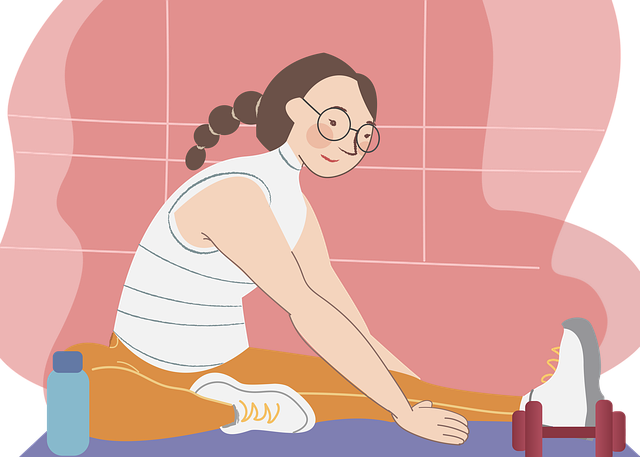Monthly Archives: September 2024
Benefits and Risks of Using Nootropics

Nootropics, often referred to as “smart drugs” or cognitive enhancers, have become increasingly popular for those seeking to improve mental clarity, focus, and overall brain function. From students aiming for sharper concentration to professionals looking to boost productivity, nootropics promise various cognitive benefits. However, before incorporating these supplements into your daily routine, it’s essential to understand both their potential advantages and risks.
If you’re interested in learning about the best nootropic options available, check out this big list of nootropics (new supplements for brain), which offers detailed insights into the most effective brain-boosting supplements.
Benefits of Using Nootropics
1. Enhanced Mental Clarity
One of the primary reasons people turn to nootropics is to achieve greater mental clarity. Nootropic compounds like L-theanine, often found in tea, are known to promote a calm state of focus, helping to clear the mental fog that can cloud daily tasks. For many, the idea of sharper thinking without the jitters associated with caffeine is a game-changer.
2. Stress Reduction and Improved Mood
Some nootropics can help reduce stress levels, offering a more balanced emotional state. Ashwagandha, a popular herbal supplement, is widely used for its ability to lower cortisol (the stress hormone). This can contribute to an improved mood and overall sense of well-being. By helping the brain manage stress more effectively, these supplements can play a role in supporting a more relaxed, focused lifestyle.
3. Boosted Memory and Learning Capacity
Nootropics like Bacopa Monnieri and Ginkgo Biloba have shown potential in improving memory retention and learning abilities. This makes them particularly attractive to students, academics, or individuals in professions requiring significant mental effort. Regular use of such supplements may support better recall and information processing, which can enhance long-term cognitive function.
4. Increased Motivation and Focus
Certain nootropics like Rhodiola Rosea and Modafinil are known for their ability to increase motivation and sustained focus. Whether it’s pushing through a heavy workload or maintaining concentration during a long study session, these supplements may offer a much-needed mental boost. By stimulating the brain’s reward systems, nootropics can improve task completion rates and help fight off mental fatigue.
Side Effects and Risks of Nootropics
While the benefits of nootropics are appealing, there are also potential downsides to consider. It’s important to take a balanced approach and weigh the risks carefully.
1. Overstimulation and Anxiety
Some nootropics, especially synthetic ones like Modafinil, can lead to overstimulation. This might manifest as restlessness, nervousness, or even heightened anxiety levels. Caffeine-based nootropics, for example, are known to cause jitters and sleeplessness if consumed in large quantities. Over time, excessive use can strain the nervous system, leading to burnout.
2. Dependency and Tolerance
Certain nootropics, particularly those that boost dopamine levels (like some racetams), can create dependency issues. Over time, the brain may become reliant on these supplements to function optimally, leading to tolerance where higher doses are required for the same effect. This can lead to overuse and potential withdrawal symptoms when the supplements are discontinued.
3. Interference with Sleep Patterns
Many nootropics are stimulants, which means they can disrupt your sleep cycle. Nootropics like Modafinil, while effective in increasing alertness and focus during the day, may interfere with the body’s natural circadian rhythm, making it harder to fall asleep at night. Chronic sleep disruption can negatively impact overall health and counteract the cognitive benefits these supplements aim to provide.
4. Unknown Long-Term Effects
While natural nootropics like Ginkgo Biloba and Bacopa Monnieri have been used for centuries, many synthetic nootropics lack long-term research. The brain is incredibly complex, and there are concerns about how these substances might affect cognitive function over the long term. It’s crucial to approach new supplements cautiously, especially those that alter neurotransmitter levels.
Consult a Healthcare Professional
Before starting any new supplement, particularly nootropics, it’s critical to consult with a healthcare professional. Everyone’s body and brain chemistry are different, and what works for one person may not be suitable for another. Your doctor can help you evaluate whether nootropics are a safe choice for you, especially if you’re taking other medications or have underlying health conditions.
READ ALSO: 5 Benefits of NAD Supplements for Healthy Aging
Conclusion
Nootropics offer several promising benefits, from mental clarity to stress reduction and enhanced focus. However, these benefits must be balanced with the risks, such as overstimulation, dependency, and potential sleep disruptions. As with any supplement, informed decision-making is key. Make sure to research thoroughly, consult professionals, and only use nootropics responsibly to support your health and well-being.
Overcoming Fear of Public Speaking
Often considered as one of people’s worst concerns, public speaking ranks even above their death anxiety. Still, personal and professional development depend on overcoming this anxiety.
Tips for Overcoming Public Speaking Anxiety
These doable techniques will help you overcome your public speaking anxiety:
Know Your Content
Investigate your topic completely from inside out. This will help you to relax and increase confidence.
Practice Makes Perfect
Practice your speech several times—in your thoughts as well as vocally. Watch your tone, speed, and body language.
See Success: Visualize It
Imagine yourself giving a surefire and interesting speech. This optimistic visualization can assist lower stress.
Control Your Nerves: Deep Breathing
To help you relax and quiet your anxiety, inhale slowly, deeply. Positive self-talk is: transposing negative ideas into positive affirmations. Remember your strengths and capabilities.
Move Around
Changing your weight or walking a few steps will center you and reduce tension.
- Interact with Your Audience
Look straight at your audience members to create rapport and a connection.
- Use Gestures
Natural motions will help you to convey your point of view and project more involvement. Personal stories help to make your speech more relevant and unforgettable.
- Embrace Imperfection
Everyone makes mistakes, though. You are free to trip over your lines or forget them. Emphasize on graceful recovery and on keeping on your discourse. Ask for helpful comments and apply them to enhance your next presentations.
Celebrate Your Success
Reward yourself for conquering your anxiety. Keep in mind, public speaking is a talent one may acquire by persistence and effort. These techniques help you to progressively overcome your anxiety and develop into a confident and competent communicator.




